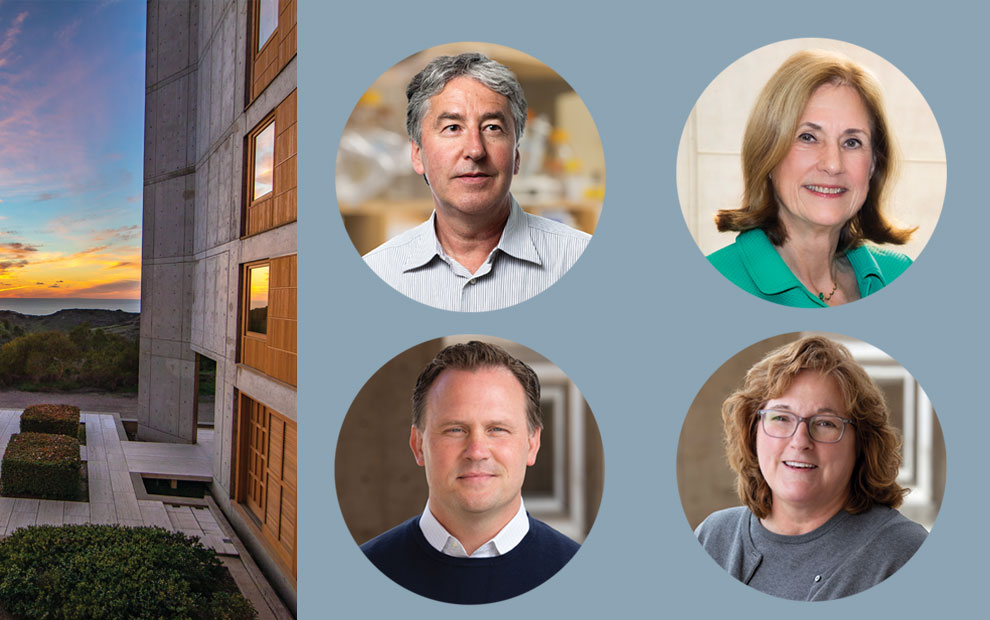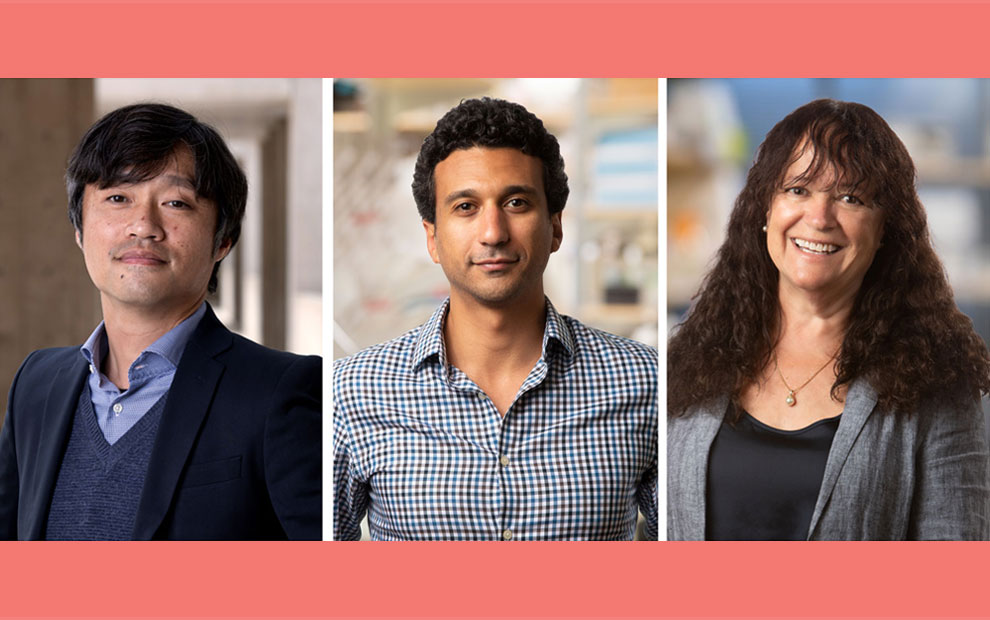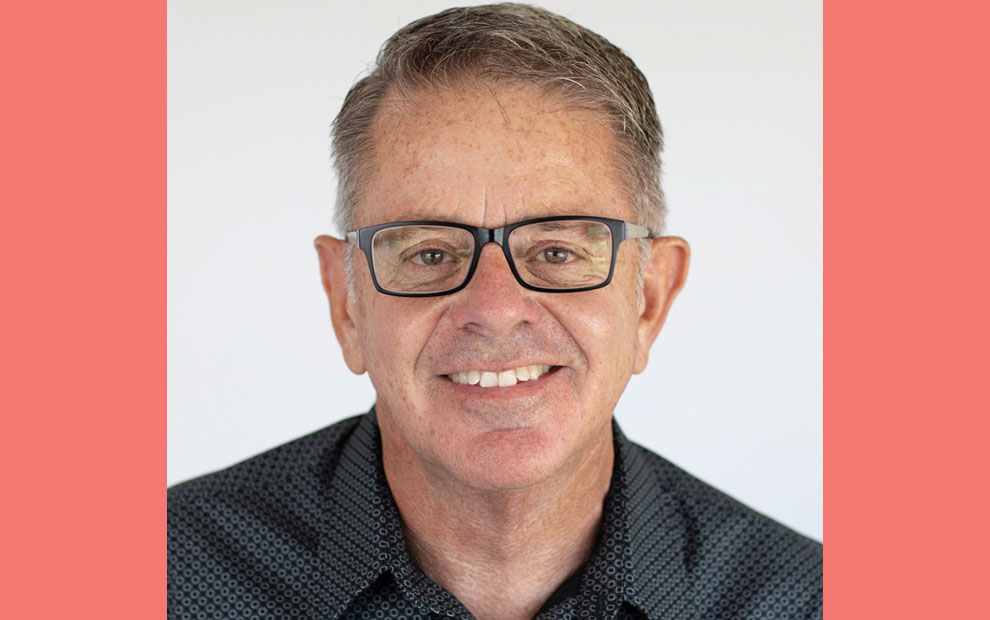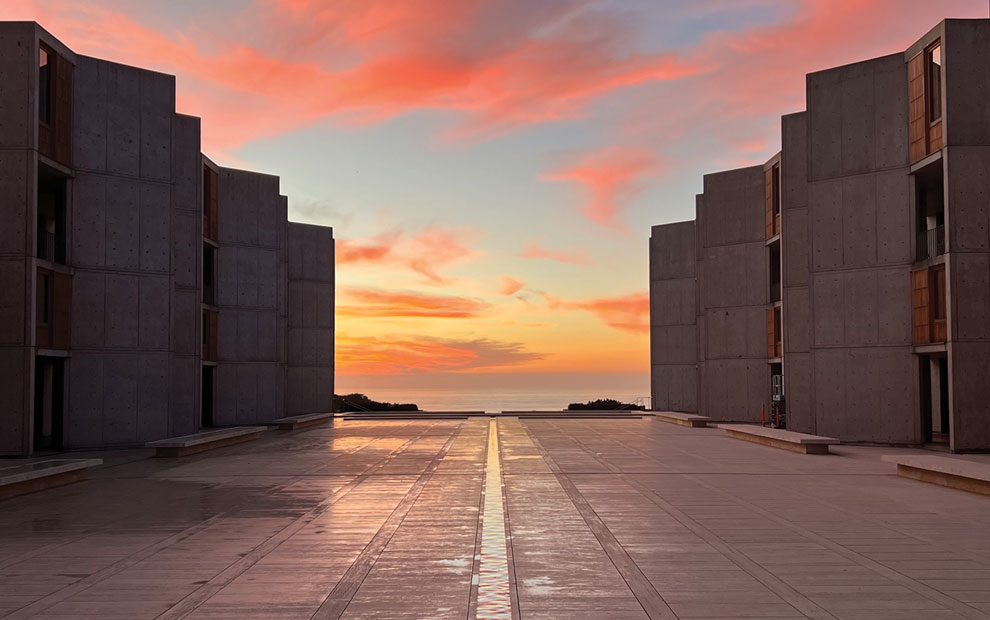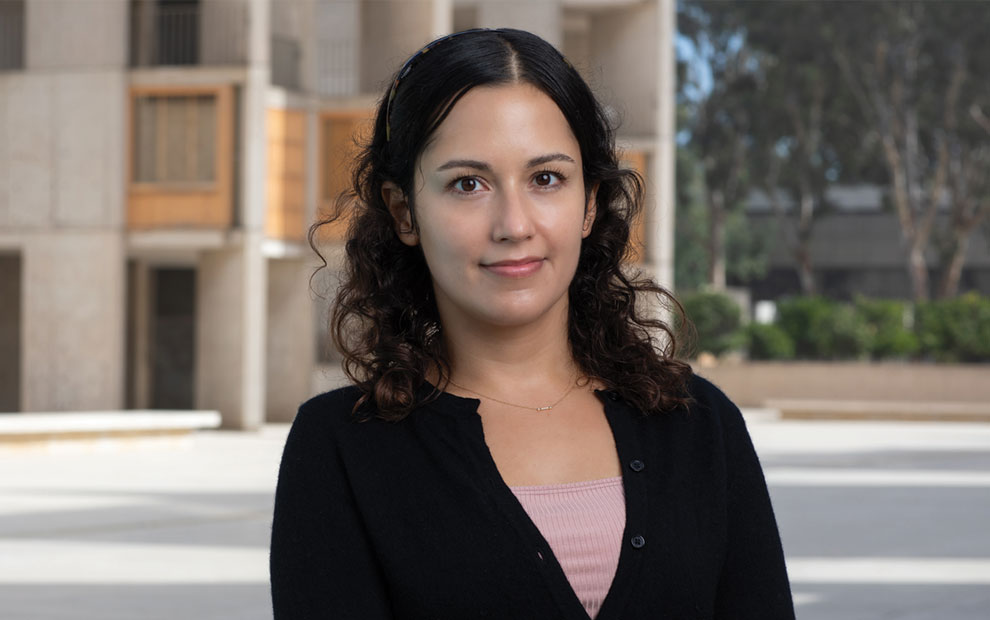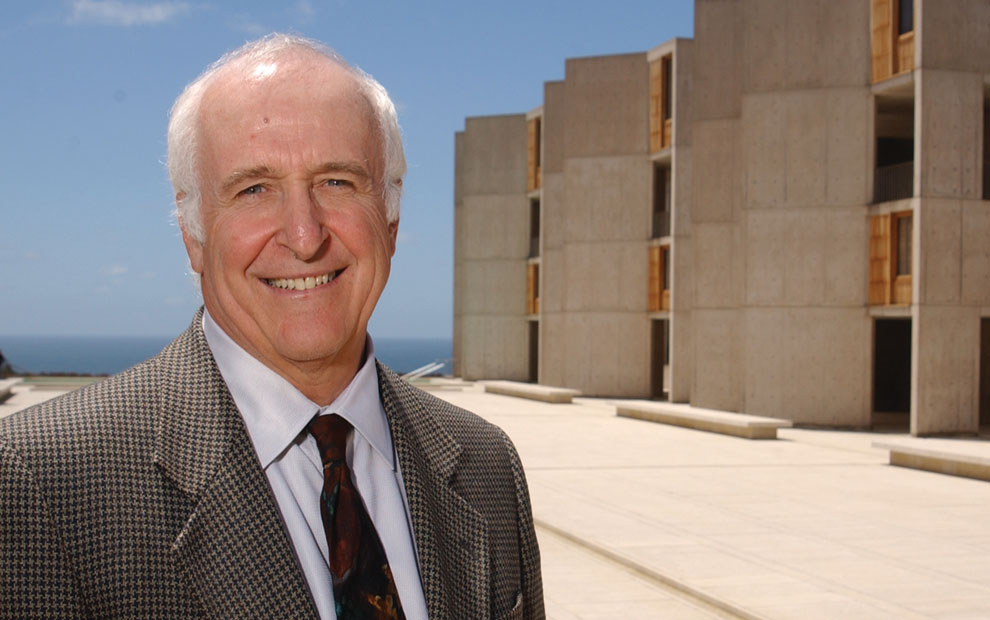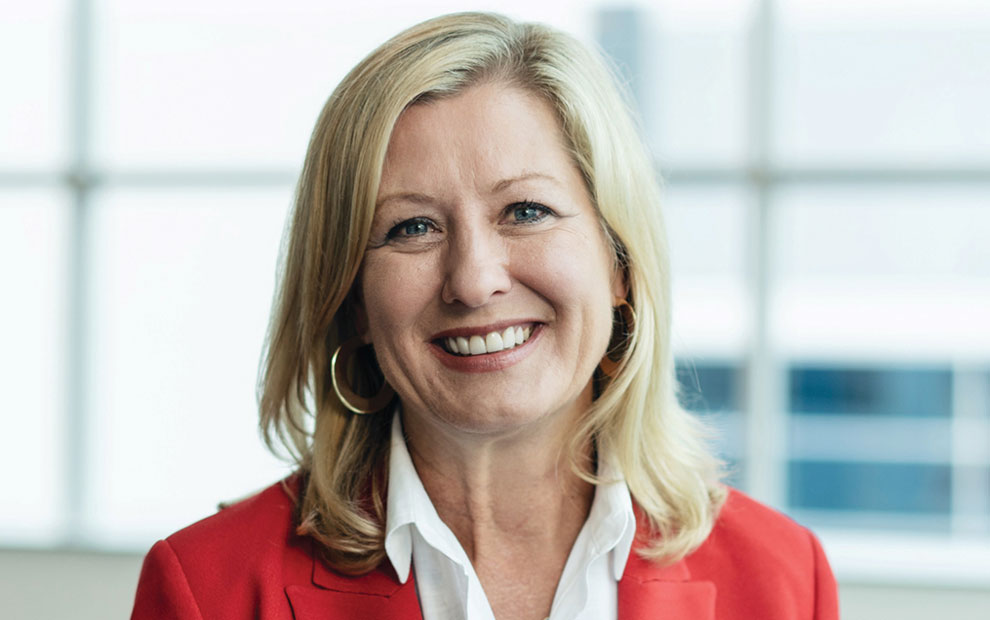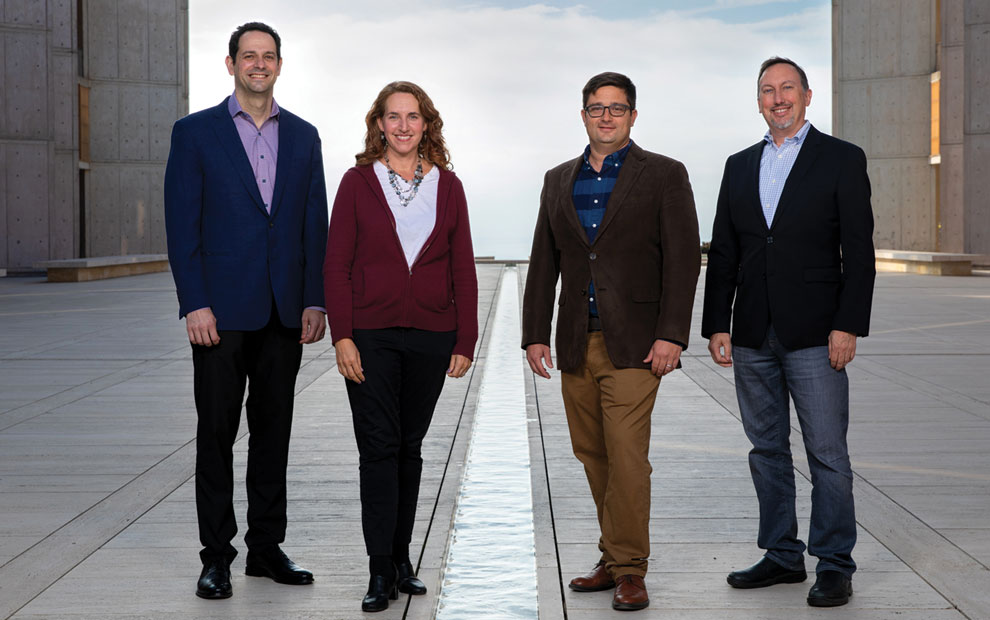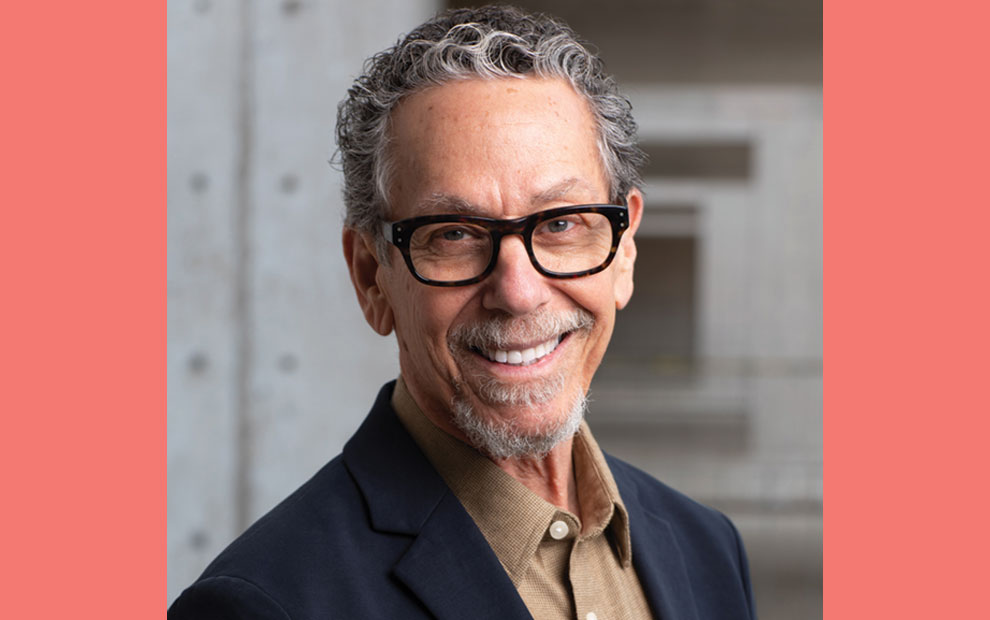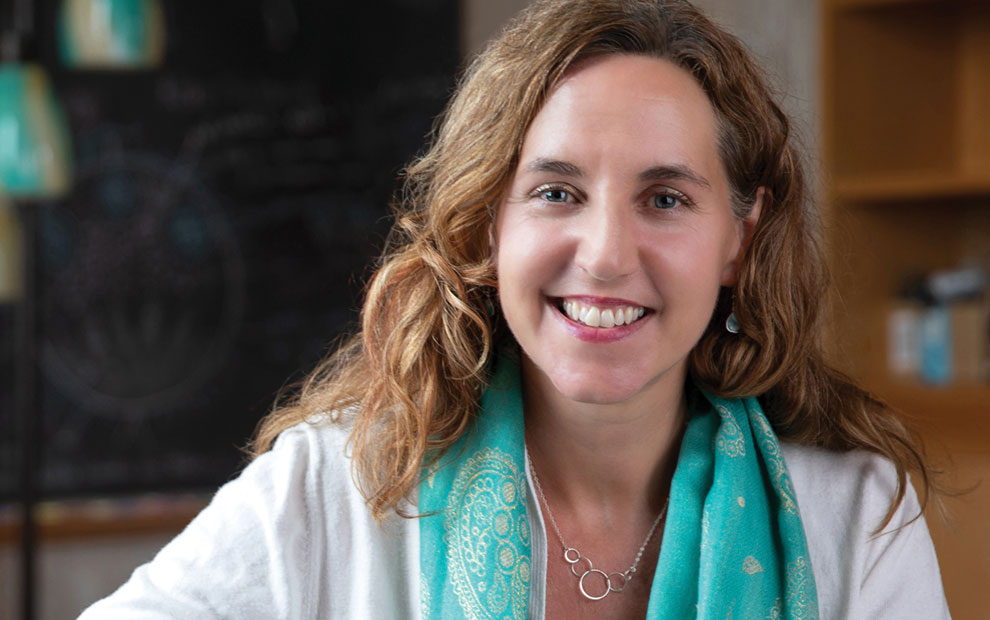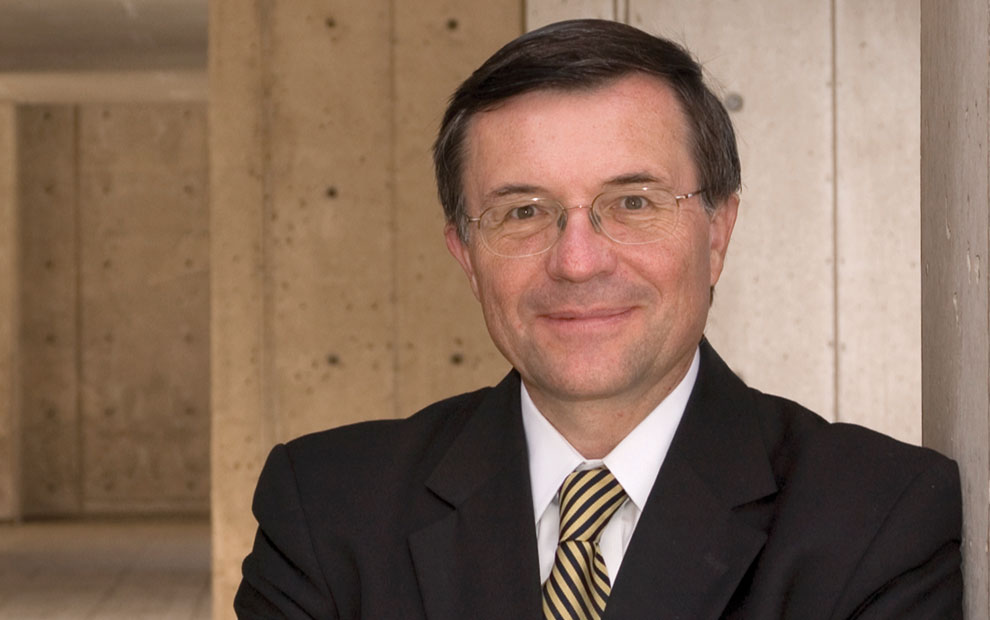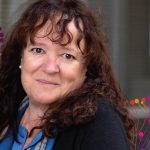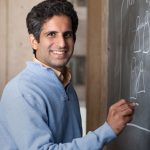Over the past few months, the Institute has welcomed four new leaders to the Salk community.
Professor Gerald Joyce was selected as Salk’s new senior vice president and chief science officer, following the departure of Martin Hetzer; Marna Whittington was appointed Board chair, assuming the role from Daniel Lewis; Bryan Robinson was named vice president of External Relations to take over for the retiring Rebecca Newman; and Sue Bacino was appointed vice president of Human Resources.
Gerald Joyce
Senior Vice President and Chief Science Officer
Joyce began his scientific career at Salk as a PhD student and postdoctoral scholar and returned as a faculty member in 2017. His research program focuses on the development of novel RNA and DNA enzymes and their potential application in clinical diagnostics and therapeutics. His work has led to the development of the first self-replicating RNA enzyme that is capable of exponential growth and evolution.
Joyce previously served as director of the Genomics Institute of the Novartis Research Foundation, dean of the faculty at Scripps Research, chair of the JASON scientific advisory group for US national security and member of the Technology Advisory Council of BP plc.
“I’m honored to serve Salk in this important role. I have a deep affection for the Institute, so this is truly special to me,” Joyce says. “I’m not going to be focused on the ‘chief’ or ‘officer’ parts of ‘chief science officer.’ It is going to be all about the science. Our prime directive and the overarching goal of the Salk Institute is to produce high-impact science.”
Joyce graduated with a BA from the University of Chicago in 1978 and both an MD and PhD from UC San Diego in 1984. He completed his postgraduate medical training at Mercy Hospital in San Diego and postdoctoral research training at the Salk Institute.
Marna Whittington
Chair of the Board of Trustees
Whittington is the former CEO of Allianz Global Investors Capital and was elected as a Salk Trustee in 2005. She had served as vice-chair since 2016.
Whittington also served as chief operating officer of Allianz Global Investors, the parent company of Allianz Global Investors Capital. Prior to that, she was managing director and chief operating officer of Morgan Stanley Asset Management. Whittington also currently serves on the boards of Tower Hill School, Macy’s Inc., the Philadelphia Contributionship (a company founded by Benjamin Franklin), Phillips 66 and Oaktree Capital Management.
“It is a privilege to be named chair of Salk’s Board of Trustees,” says Whittington. “I am honored to step into this role as we begin our five-year Campaign for the Future to expand our capabilities and advance science across the Institute. And I am proud to be a part of a Board that has a collective commitment to supporting Salk’s esteemed faculty as they strive to find solutions to the most significant challenges impacting human health.”
Whittington holds a master’s degree and PhD from the University of Pittsburgh, both in quantitative methods, and a BA in mathematics from the University of Delaware.
Bryan Robinson
Vice President of External Relations
Robinson joins Salk from The Jackson Laboratory, an independent, nonprofit biomedical research institution headquartered in Bar Harbor, Maine, where he served as the vice president for advancement and a senior member of the president’s executive committee.
Prior to his role at The Jackson Laboratory, Robinson served as president of the UNCP Foundation and vice chancellor for advancement at The University of North Carolina at Pembroke. He served previously as the senior assistant vice president and interim vice president at the University of Louisville. Robinson was also a senior director of development and campaign planning at Indiana University and a state government appointee in Indiana.
“I feel honored and privileged to join this elite research institute,” Robinson says. “I’ve seen myself how important education and science are, how transformative they can be to people’s lives, and so I’ve spent my career working to support these efforts through philanthropy. There is so much opportunity here at Salk, with our strong leadership, Board of Trustees and External Relations team, as well as our new Campaign, to leverage all that’s already been accomplished and build upon the Institute’s outstanding history and reputation.”
Robinson earned his undergraduate degree in pre-law studies and his master’s degree in education administration at the University of Louisville. He earned a PhD in education and social change at Bellarmine University, during which time he completed field research at the University of Roehampton in London on the impact of poverty on child and youth development.
Sue Bacino
Vice President of Human Resources
Bacino joined Salk having most recently served as head of HR for a medical device company in Carlsbad. In that role—reporting to the CEO and serving as a key member of the leadership team—Bacino was responsible for the implementation of all HR-related processes and functions. Prior to that, she held the same position at the Genomics Institute of the Novartis Research Foundation, where she partnered with scientific leadership on recruiting, engaging and retaining talent.
Bacino has also served as executive director of HR for Amylin Pharmaceuticals, and she held various leadership positions at Vical Incorporated before Amylin. Her experience beyond the med-tech field includes serving as vice president of HR for Father Joe’s Villages and Breg, Inc.
“I’m honored to join the team at Salk,” Bacino says. “While I am not a scientist, I am motivated to have a positive impact on this organization where the brightest human minds work to positively impact the human condition.”
Bacino earned her BA degree from UC Davis and completed coursework in a Master of Administration program at San Diego State University.






















































